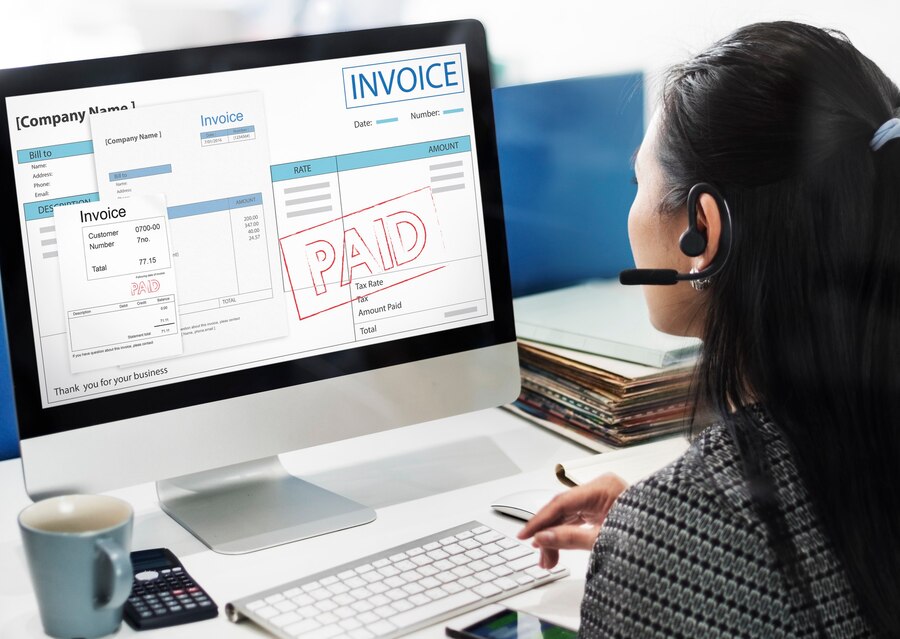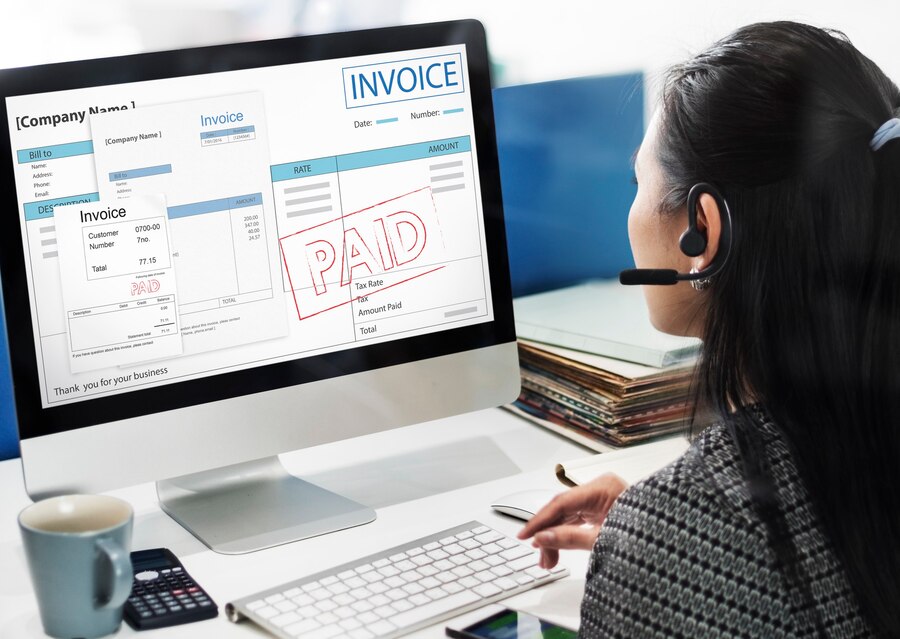Introduction
In today’s fast-paced digital economy, businesses are constantly looking for ways to optimize financial management and improve transparency. As competition intensifies, especially in rapidly developing regions like the UAE, the use of modern accounting tools has become not just advantageous—but essential.
Enter accounting software: a game-changing solution for businesses, especially small enterprises, to streamline operations, reduce manual errors, and meet local regulatory standards with ease.
This in-depth guide explores everything you need to know about accounting software, its benefits for small businesses, and how it’s shaping the financial ecosystem in the UAE.
What is Accounting Software?
Defining Accounting Software
Accounting software refers to digital platforms or applications that handle and automate a company’s financial transactions. It helps with functions like:
- Bookkeeping
- Invoicing
- Tax calculation
- Expense tracking
- Payroll
- Financial reporting
How It Works
Accounting software connects various financial data points into a centralized system. From customer invoices to bank statements, all data is captured and analyzed to give an accurate picture of your financial health.
Key Features of Modern Accounting Tools
| Feature | Description |
|---|---|
| Dashboard Analytics | Real-time financial insights |
| Cloud Access | Work from anywhere, anytime |
| Tax Management | VAT/GST compliant invoices |
| Multi-currency Support | Ideal for international transactions |
| Automated Invoicing | Set up recurring invoices with reminders |
| Expense Categorization | Organize expenses into custom-defined categories |
| Bank Reconciliation | Sync with bank feeds for accurate tracking |
Benefits of Accounting Software
Implementing the right accounting software offers tangible advantages:
1. Time Efficiency
Manual calculations, spreadsheets, and paper invoices are time-consuming. With automation, businesses save hours each week.
2. Financial Accuracy
Automation reduces the likelihood of human errors and ensures up-to-date, compliant records.
3. Regulatory Compliance
Most platforms support local tax regulations, including VAT in the UAE, with compliant invoice generation and tax reporting.
4. Cash Flow Management
Monitor payables and receivables in real time to avoid liquidity issues.
5. Scalability
From a single freelancer to a large enterprise, accounting software adapts to your growth.
6. Secure Data Backup
Cloud-based tools store financial data securely with automatic backups and encryption.
Accounting Software for Small Business
Small businesses, especially in early growth stages, need simple, cost-effective solutions that offer flexibility without overwhelming features.
Why Small Businesses Need It
- Limited resources to hire full-time accountants
- Need to track every dollar to remain profitable
- Simplify tax filing and compliance
- Gain insights to make data-driven decisions
Common Use Cases for Small Businesses
- Retailers: Track daily sales, inventory, and expenses
- Freelancers: Manage invoices and client payments
- Startups: Track burn rate and funding usage
- Service Providers: Manage billing cycles and recurring clients
Ideal Features for Small Businesses
| Must-Have | Why It Matters |
|---|---|
| User-Friendly Interface | Avoid the need for accounting expertise |
| Affordable Pricing Plans | Fit tight budgets |
| Custom Invoice Templates | Professional branding |
| Mobile App Access | Manage finances on the go |
| VAT Compliance | Essential for UAE tax regulations |
Top Challenges Faced by Small Businesses (Solved by Software)
- Manual errors in bookkeeping
- Lack of centralized financial data
- Late payments and unpaid invoices
- Difficulty in managing payroll and taxes
Modern accounting software handles these challenges with smart automation, analytics, and reminders.
Accounting Software UAE
The UAE is a global hub for commerce, technology, and innovation. With mandatory VAT laws, cross-border trade, and a digitally transforming business environment, the need for reliable accounting software is greater than ever.
Why UAE Businesses Need Specialized Solutions
- VAT Integration: UAE introduced a 5% VAT in 2018, and businesses must comply with strict rules for invoice generation and tax returns.
- Multi-Currency Handling: Many UAE businesses transact in AED, USD, EUR, and other currencies, requiring robust multi-currency functionality.
- Arabic & English Interfaces: Bilingual capabilities improve user accessibility and local compliance.
- Cloud-First Approach: The UAE supports cloud infrastructure for SMEs, making cloud accounting tools highly attractive.
- Industry-Specific Needs: From logistics to hospitality, businesses in Dubai, Abu Dhabi, and beyond need tailored solutions.
Government Initiatives Supporting Digitization
- Smart Dubai initiative encourages digital transformation
- DED (Dubai Economic Department) promotes the use of tech in business registration and compliance
- Etisalat & Du partnerships offer bundled accounting software with internet packages for SMEs
Common Industries Benefiting from Accounting Software in UAE
- Construction
- Hospitality
- Retail
- Professional Services
- Import/Export
Key Features to Look For in UAE-Focused Software
| Feature | Importance |
|---|---|
| VAT-Compliant Reporting | Essential for FTA audit and compliance |
| Arabic Language Support | Needed for local staff and government docs |
| Cloud Hosting in UAE Region | Complies with data residency rules |
| Integration with POS/ERP | Synchronizes sales and inventory |
| Automated Tax Filing | Reduces effort during tax season |
How to Choose the Right Accounting Software
Step-by-Step Checklist
- Assess Your Business Needs
- Do you need multi-user access?
- Are you managing inventory or payroll?
- Set a Budget
- Choose between free, subscription-based, or one-time fee models.
- Request a Demo or Trial
- Most good software offers free trials—test before investing.
- Check Support & Training
- Look for chat, phone, or email support and comprehensive tutorials.
- Evaluate Local Compliance
- Ensure it meets UAE VAT regulations and Arabic support if needed.
- Check for Integrations
- Does it integrate with your bank, payment gateway, or CRM?
Cloud vs Desktop Accounting Software
| Factor | Cloud Accounting | Desktop Accounting |
|---|---|---|
| Accessibility | Anytime, anywhere access | Limited to installed devices |
| Updates | Auto-updates and features | Manual updates |
| Cost | Subscription-based (OPEX) | One-time license (CAPEX) |
| Security | Encrypted, backed up in cloud | Depends on local security |
| Collaboration | Multi-user, remote collaboration | Mostly single-user access |
Future of Accounting Software in UAE
Trends to Watch
- AI Integration: Auto-categorize expenses and detect anomalies
- Blockchain: Immutable, verifiable financial records
- Voice Accounting: Voice-to-text features for hands-free input
- OCR Scanning: Scan receipts and auto-input data
- Banking Integrations: Real-time financial sync with UAE banks
With these innovations, businesses will be able to manage finances with unparalleled ease and accuracy.
Real Case Study: UAE-Based Small Business
A Dubai-based eCommerce startup shifted from manual spreadsheets to cloud-based accounting software. Within three months, they reported:
- 30% reduction in time spent on monthly reporting
- 2x faster invoice processing
- Zero VAT filing errors
- Better control over expense tracking
This transformation helped them scale rapidly while staying financially compliant.
Final Thoughts
Accounting software has moved from being a luxury to a necessity. Especially for small businesses in the UAE, it is crucial to ensure accurate, compliant, and real-time financial data management.
By adopting the right tool tailored to your local and industry-specific needs, you gain control, efficiency, and confidence in your financial decision-making.
FAQs
1. What is accounting software?
Accounting software is a digital tool that helps businesses manage their finances, including invoicing, expenses, payroll, and tax compliance.
2. Why do small businesses need accounting software?
It saves time, reduces errors, ensures tax compliance, and provides financial insights to help small businesses grow efficiently.
3. Is there accounting software specific to UAE?
Yes, many software options are tailored for UAE businesses, offering VAT compliance, Arabic language support, and local hosting.
4. Can I use accounting software on mobile?
Most modern accounting tools offer mobile apps, allowing you to manage finances anytime, anywhere.
5. How do I choose the right accounting software?
Assess your needs, compare features, check for UAE compliance, take a trial, and consider customer support options.





